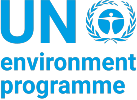The Waste Management Outlook for West Asia was commissioned by the UNEP West Asia Office in partnership with the International Environmental Technology Centre (IETC), the Centre for Environment and Development for the Arab Region and Europe (CEDARE), and the International Solid Waste Association (ISWA). West Asia refers to the twelve countries and territories of Bahrain, Iraq, Jordan, Kuwait, Lebanon, Oman, Palestine, Qatar, Saudi Arabia, Syria, the United Arab Emirates (UAE) and Yemen. The region’s unique cultural and religious perspectives and climate conditions create significant challenges for waste management.
This Regional Outlook builds upon the Global Waste Management Outlook published in 2015. Focusing on waste management systems, finance and governance, it articulates a means of future progress toward sustainable waste management to enable a transition from a region historically dependent on the low cost of dumping waste to one utilizing waste as a resource. To visualize this process, the Regional Outlook highlights the potential of the circular economy, in which waste serves as a resource and as a driver of regional economic growth through multi-stakeholder involvement, creating a range of funding and investment opportunities.
This Regional Outlook-Waste Management Outlook for West Asia- sets out a comprehensive view of the current situation across the region, where pressures for sound waste management have increased as the population has grown from 99 million in 2000 to 155 million in 2016, with the proportion of urban residents increasing from 63% to 70%. Topics discussed include Status of the Region in Waste Management; Waste Governance; Technologies, Waste Systems and Operations, Business and Economic Opportunities in Waste; and Sustainable Development Goals.
Learn more from here.






